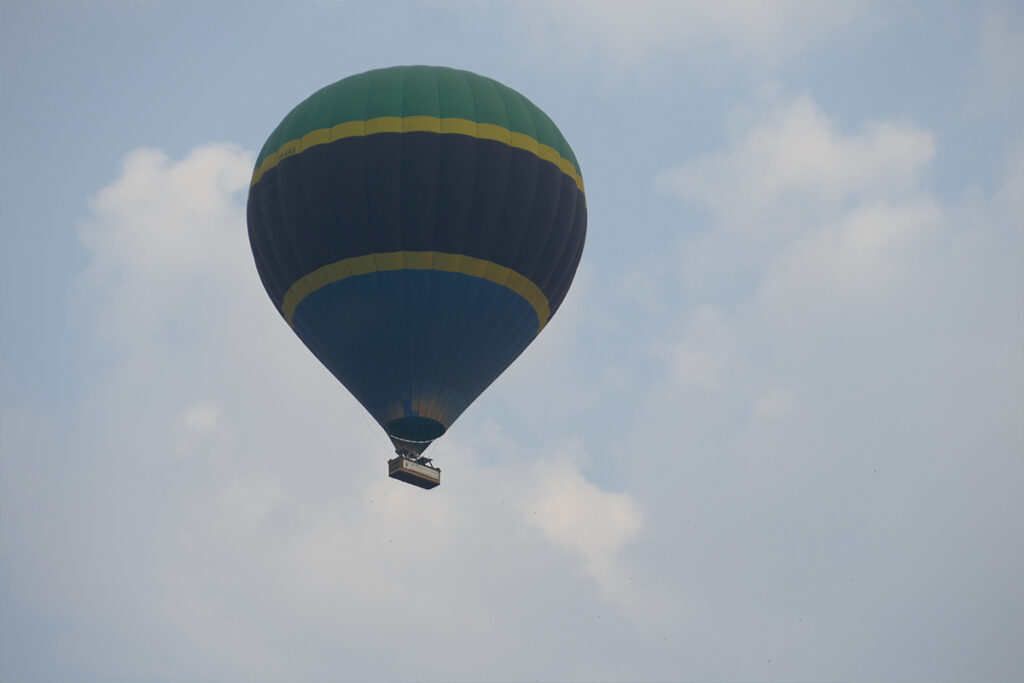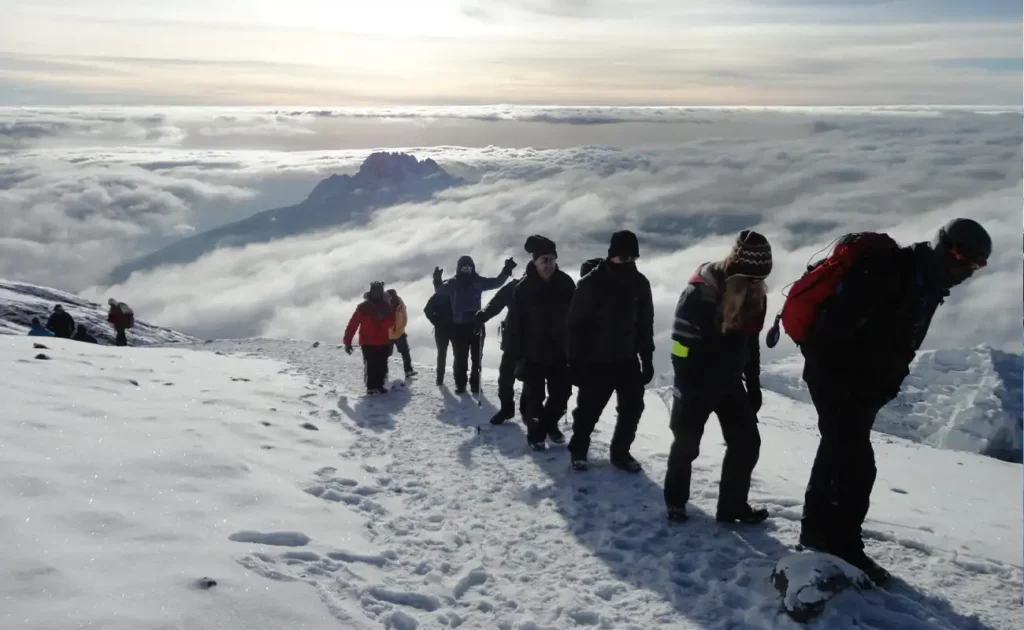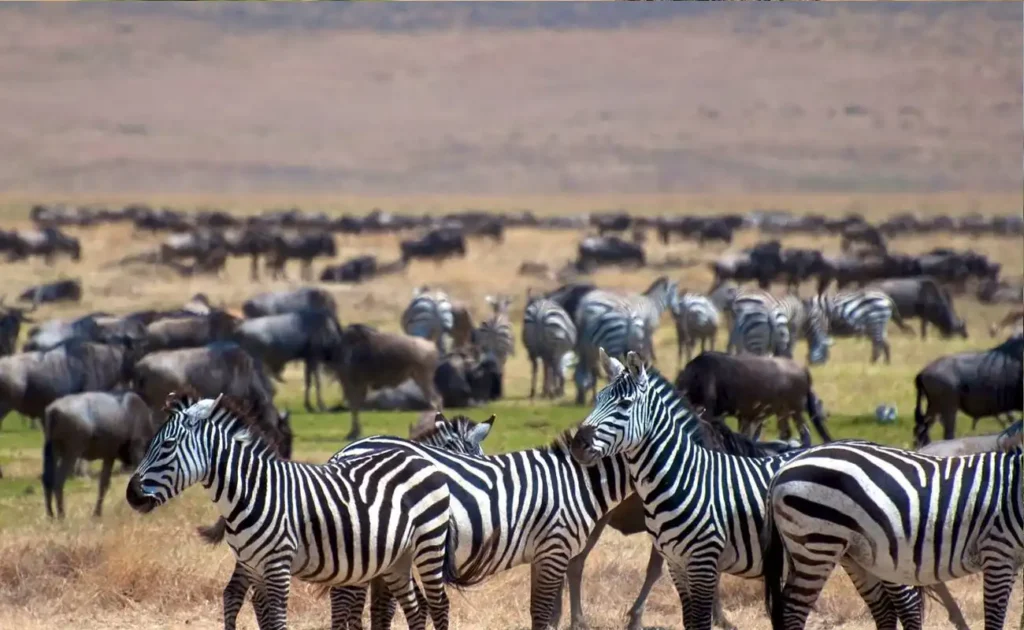Have you ever wondered what it feels like to experience Africa’s wildlife during the lush, vibrant wet season? While many travelers prefer the dry season for safaris, the verdant landscapes and fewer crowds in Tanzania’s wet season offer a unique charm. It’s an opportune time for photographing stunning scenery and witnessing newborn animals.
One of the standout benefits is the significant reduction in the number of tourists, allowing for a more intimate wildlife experience. The abundant water sources draw diverse species, enhancing animal sightings. On the flip side, the heavy rains can make certain areas inaccessible and lead to muddy terrains, challenging even the most seasoned safari-goer. However, those who are flexible and prepared can enjoy the hidden perks such as discounted rates and the chance to engage more closely with local culture.

Wet Season Safari Tanzania: Pros, Cons & Hidden Perks
A wet season safari in Tanzania can be an exciting adventure, full of unique sights and experiences. The landscape transforms into a lush paradise, filled with vibrant flora and an array of baby animals. However, traveling during this time also poses some challenges, like heavy rains and muddy paths. But the rewards often outweigh the cons, with fewer tourists meaning more intimate animal encounters. Those willing to embrace the rain are sure to enjoy the unmatched beauty of the season.
There are several advantages to visiting Tanzania during the wet season. Hotel rates usually drop, catering to a smaller crowd and offering better deals. Wildlife is still plentiful, drawn to freshly filled watering holes. Bird watchers find this season especially appealing, as migratory birds flock to the region. These elements create a rich and rewarding experience for those who visit.
Despite the perks, there are some drawbacks to consider. Roads can become difficult to navigate due to the persistent rain. Certain parks may even close to prevent damage.
- Muddy conditions make some areas hard to reach.
- Visibility might be reduced during heavy downpours.
- Pests like mosquitoes are more present.
Travelers should plan carefully for these factors.
Unexpected benefits add to the appeal of a wet season safari. The landscapes present an untouched, wild beauty that only comes with rain. Specially adapted wildlife behavior, like migration patterns, is observed with ease. Another advantage is undertaking cultural visits, as local communities often craft unique rainy-season experiences for visitors. With proper preparation, you can capture memories that last a lifetime.
Understanding the Wet Season in Tanzania
The wet season in Tanzania is a time of rejuvenation and growth, transforming the landscape into a green oasis. Typically spanning from March to May, it brings consistent rainfall across the country. This season is crucial for supporting the diverse ecosystems within Tanzania’s numerous national parks. Rainwater fills rivers and lagoons, creating rich habitats for plants and animals. The lush scenery attracts photographers eager to capture its vivid beauty.
During the wet season, wildlife behavior undergoes noticeable changes. The abundance of water allows animals to roam freely, dispersing across the vast plains instead of congregating around dwindling water sources. This dispersal can make specific wildlife harder to spot, but also presents unique opportunities to observe lesser-seen species. Additionally, the influx of migratory birds turns the skies into a colorful show. Bird watchers find this period particularly rewarding.
Despite its beauty, the wet season poses some challenges to travelers. Roads can become muddy and difficult to navigate. In remote areas, closures are common to avoid damaging fragile soils.
- Unpredictable weather can lead to unexpected delays.
- Heavy rains might limit some outdoor activities.
- Travelers should pack accordingly for wet conditions.
Proper planning ensures a safe and enjoyable trip.
Understanding the wet season involves appreciating both its challenges and rewards. Local communities adapt their daily routines, often incorporating unique cultural events that delight visitors. The rainy season becomes a backdrop to vibrant festivals and traditional celebrations. Experiencing these events provides a deeper connection to Tanzanian culture and its resilient spirit. Overall, a visit during this time promises an unforgettable experience.
Advantages of Wet Season Safari
Visiting Tanzania during the wet season has several unique advantages. One of the most notable is the reduction in tourist numbers. This means you can explore the parks and reserves with fewer crowds, allowing for a more personal experience. The landscapes are breathtaking, with lush greenery covering the plains. Photographers find endless opportunities to capture stunning scenery.
The wet season is also a time of new life in the animal kingdom. Many animals give birth during this period, providing a chance to see adorable newborns. These baby animals are often seen with their mothers, adding to the thrill of wildlife sightings. Additionally, the plentiful water sources make it easier to spot large groups of animals. Herds of elephants, antelopes, and zebras are common sights.
Another benefit of traveling during the wet season is the cost savings. Accommodations and safari tours often offer reduced rates to attract more visitors. This can make a once-in-a-lifetime safari more affordable.
| Season | Accommodation Costs |
|---|---|
| Dry Season | High |
| Wet Season | Lower |
Taking advantage of these discounts can enhance your overall experience.
The wet season offers an enhanced bird-watching experience. Migratory birds flock to Tanzania, creating vibrant and diverse birdlife scenes. Bird watchers can enjoy spotting colorful species that are absent during other times of the year. Additionally, the chirping and singing of birds add a melodious background to your safari. This element makes the wet season a top choice for bird enthusiasts.
Disadvantages of Wet Season Safari
A wet season safari in Tanzania does come with its set of challenges. Navigating the muddy roads can be troublesome, often requiring special vehicles. Rain can cause road closures, making certain areas inaccessible. This can limit your exploration options and lead to unexpected changes in itinerary. Ensuring your vehicle is equipped for such conditions is crucial.
The persistent rain can also impact wildlife viewing. Animals tend to spread out due to water availability, making specific species harder to locate. Dense foliage created by lush vegetation adds to the challenge of spotting wildlife. This affects the overall safari experience for those keen on animal sightings. Patience becomes key during this season.
Weather unpredictability is another issue to consider. Heavy rains might lead to sudden trip cancellations or delays. Packing appropriate rain gear becomes essential for comfort and convenience. Visitors need to be flexible and prepared to adjust plans.
- Rains may disrupt planned outdoor activities.
- Carrying waterproof clothing is advisable.
- Checking forecasts regularly can help manage expectations.
Weather conditions can significantly shape your experience.
Pests like mosquitoes thrive in the wet season, leading to increased chances of insect bites. Higher humidity creates a perfect breeding ground for mosquitoes and other insects. This heightens the risk of malaria in some regions, which travelers should be aware of. Taking precautions, such as using insect repellent and sleeping under mosquito nets, becomes almost mandatory. It’s important to consult a health professional before traveling.
Accommodations may vary in quality during the wet season. Some lodges might not maintain the same service level as in the dry season. Options could be limited in remote areas due to challenging weather. Checking reviews and choosing reputable places can help ensure a pleasant stay. Research is vital to secure accommodations that cater well during this time.
Despite these disadvantages, understanding them allows for better preparation. Travelers who approach their adventure with the right tools and mindset can still enjoy a rewarding safari. With careful planning, the wet season’s beauty and challenges can coexist harmoniously. Learning to embrace the season’s unpredictability leads to memorable experiences. Staying informed about potential setbacks helps make the most of your trip.
Hidden Perks Worth Considering
While a wet season safari in Tanzania may seem daunting at first, there are several hidden perks to be enjoyed. One of the most delightful surprises is the chance to experience Tanzania’s rich culture with fewer tourists around. Smaller crowds mean a more personal interaction with locals and a deeper understanding of their customs. You’ll have the opportunity to participate in traditional festivals and savor authentic local cuisine. These experiences create lasting memories beyond the wildlife.
The wet season also provides incredible photographic opportunities. The interplay of sunlight and rain creates stunning rainbows over the African plains. Vibrant flowers bloom across the landscape, offering a burst of colors for perfect photo moments. Unique cloud formations add drama to the skies, enhancing every snapshot. Photographers find endless subjects to capture.
Cost savings are another advantage during this time. Typically, safari packages and lodging rates are lower to attract more visitors.
| Type | Dry Season Cost | Wet Season Cost |
|---|---|---|
| Luxury Lodge | $500/night | $350/night |
| Guided Safari | $200/day | $150/day |
These reduced rates make it an opportune time to experience luxury at a fraction of the cost.
There are also opportunities for unique animal interactions. The influx of water means animals are constantly on the move, offering dynamic sightings. Witnessing newborn animals take their first steps is a magical experience. Predators, like lions and cheetahs, are more active as they hunt for food. These interactions provide rare insights into animal behaviors.
River safaris offer a different perspective during the wet season. Waterways become more navigable after heavy rains. This allows for serene boat trips teeming with aquatic life and water birds. Seeing wildlife from the water offers a unique vantage point not available on land. It’s an enriching addition to traditional safaris.
Wildlife Sightings During the Wet Season
The wet season in Tanzania is a bustling time for wildlife activity. As the rains begin, many animals migrate to areas with ample food and water. This movement creates fantastic opportunities to witness large herds of zebras, wildebeests, and elephants. These scenes are mesmerizing and showcase nature’s rhythms. The diverse gathering of animals promises thrilling sights around every corner.
Young animals are a particular highlight during this period. The wet season is calving time for many species, resulting in an influx of newborns. Seeing baby antelopes, giraffes, and buffalos taking their first steps is heartwarming. Witnessing this pivotal time in their life cycles is both educational and captivating. It’s a privilege to observe their introduction to the world.
Bird watching is especially rewarding during the wet season. Migratory birds flock to Tanzania, adding vibrant colors to the skies.
- Flamingos gather in large numbers, painting the horizon pink.
- Kingfishers dart along waterways, flashing their brilliant blues.
- Eagles and hawks soar overhead, searching for prey.
Each sighting offers a unique chance to learn about bird behavior and migration patterns.
Predators are also more visible during the wet season. With many young animals around, big cats like lions and leopards increase their hunting activities. Watching a lion pride coordinate their efforts is a breathtaking experience. This season allows safari-goers to witness the circle of life in its rawest form. Understanding predator-prey dynamics enhances the overall adventure.
Water-based habitats come alive after the rains. Crocodiles and hippos are frequently spotted basking by swollen rivers. Colorful fish swim in clear waters, visible from boat safaris. Exploring these environments gives travelers a broader perspective of Tanzania’s rich ecosystems. It’s a reminder of how interconnected life is in these wild spaces.
Planning your Wet Season Safari: Tips and Insights
Preparing for a wet season safari in Tanzania requires thoughtful planning. Start by deciding which parks and regions to visit, as some areas may close due to rain. Researching your destinations helps maximize wildlife viewing opportunities. Consider booking guided tours that are well-versed in navigating during the rainy months. This way, you ensure a smooth and enriching experience.
Packing smart can make all the difference on your adventure. Bring waterproof clothing and sturdy shoes for muddy conditions. A quality rain jacket is essential to stay dry while exploring. Don’t forget insect repellent to guard against mosquitoes during this damp season. Having the right gear ensures comfort throughout your journey.
Accommodations often offer great deals in the wet season, so take advantage of the lower costs when planning your trip. Look for lodges or camps with good reviews from other travelers who visited during rainy times.
| Accommodation Type | Wet Season Discount |
|---|---|
| Tented Camp | 30% Off |
| Savannah Lodge | 20% Off |
Picking established venues guarantees quality service despite potential weather challenges.
An itinerary that balances outdoor activities with indoor explorations can enrich your safari experience. Schedule game drives when rain is less likely but have local museum or cultural tour options as alternatives should weather disrupt plans. This flexibility can lead to unexpected adventures that deepen your understanding of local culture and traditions.
Stay informed about current weather conditions using reliable forecasts before heading out each day. Understanding typical rainfall patterns helps manage expectations about possible itinerary changes. Communicate regularly with guides who are familiar with seasonal nuances for real-time advisories on route adjustments or sightings updates.
By considering these insights while planning, travelers increase their chances of having an unforgettable Tanzanian safari—rain or shine! Embrace both sunny moments and downpours as integral parts of this vibrant ecosystem’s life cycle; such openness amplifies enjoyment derived from its rich natural beauty at every turn!
Impact of Climate Change on Wet Season Safaris
Climate change has significantly altered the dynamics of wet season safaris in Tanzania. Unpredictable rainfall patterns have become more common, making it harder to plan trips. Some areas experience heavier downpours, while others face unseasonal droughts. This inconsistency affects the growth of plants and the availability of water sources. As a result, animal movement and behavior change, impacting wildlife sightings.
Changing weather patterns also influence the health of local ecosystems. Flooding can lead to soil erosion, damaging the habitats of numerous species. Meanwhile, prolonged drought periods stress both flora and fauna, reducing biodiversity. Reduced availability of food and water may force animals to migrate unpredictably. Such shifts can challenge the efforts of conservationists working to protect endangered species.
Tour operators must adapt to these climate changes, often adjusting routes and schedules on short notice.
- Guides need updated knowledge on animal movements.
- Vehicles must be equipped to handle unpredictable conditions.
- Tourists should prepare for sudden itinerary changes.
Flexibility and preparedness become key components of a successful safari experience.
Climate change also affects the local communities tied to tourism. Farmers face challenges with shifting planting seasons, impacting their crops and livelihoods. Erratic weather can reduce the influx of tourists, affecting businesses that depend on safari travelers. These economic pressures compel communities to find innovative ways to stay resilient.
Despite these challenges, climate change has also prompted positive actions. Sustainable tourism practices are becoming more prevalent, with an emphasis on minimizing environmental impact. Eco-friendly lodges and tours that support conservation efforts are gaining popularity. Educating tourists about climate issues fosters a deeper connection to the environment and encourages responsible travel. Through collective efforts, we can mitigate the adverse effects and protect Tanzania’s rich biodiversity.
Key Takeaways
- Wet season safaris offer lush landscapes and fewer tourists.
- Muddy roads and dense foliage can make animal spotting tough.
- Discounted rates are available during the wet season.
- Cultural experiences provide deeper connections with local traditions.
- The season is perfect for witnessing newborn animals in the wild.



